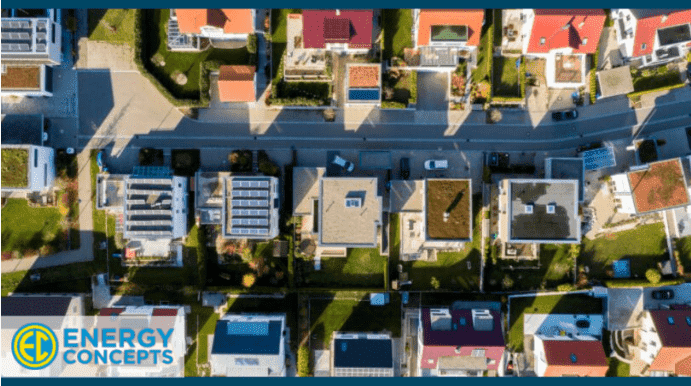How Community Solar Systems Work

You don’t necessarily need your own solar panels to benefit from low-cost, renewable energy. One approach to solar power that’s gaining momentum is a community solar panel system or solar garden.
There are several different arrangements that can be explored, but think of a solar garden as something of a co-op. Essentially, a community can pool their resources to develop an array of solar panels — typically in a nearby field — so that all members can benefit from reduced energy bills.
The Benefits of Community Solar
Going this route offers a couple of advantages: For one, it reduces the upfront cost of installing a solar panel system because a group of participants can crowdsource the project.
Another advantage is that not everyone wants to be responsible for the maintenance of their own rooftop system. Members of a community solar project share the cost of routine maintenance and repairs.
The Rules of Community Solar
While solar gardens can offer similar electricity savings as those installed on individual rooftops, there are a few rules governing how they operate. For example, member households typically must be located within proximity to the community solar project and can only receive enough power to supply their annual energy consumption. In other words, they’re not eligible for energy credits the way utility customers are. Many utility companies offer credits for excess power their customers’ solar panels produce.
In conclusion, a solar garden is certainly worth exploring. It will require neighborhood buy-in, but the concept is feasible. Be sure to work with a reputable solar company on the installation and logistics of such a project. Energy Concepts provides solar power services to both businesses and homes. With a knowledgeable and friendly staff, Energy Concepts is one of the longest-running solar companies in Fresno.
Energy Concepts can handle all of your solar needs. If you’re interested in solar, give us a call at (559) 485-2504 or fill out an online contact form!
